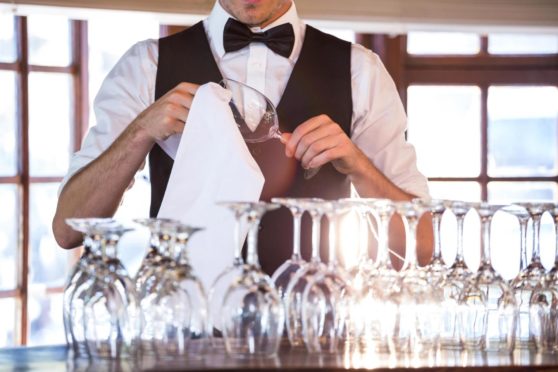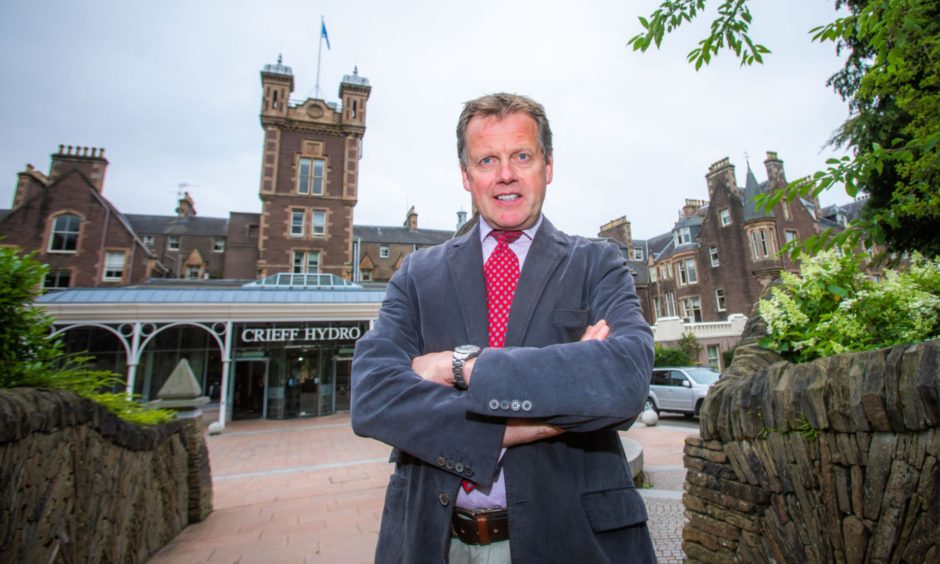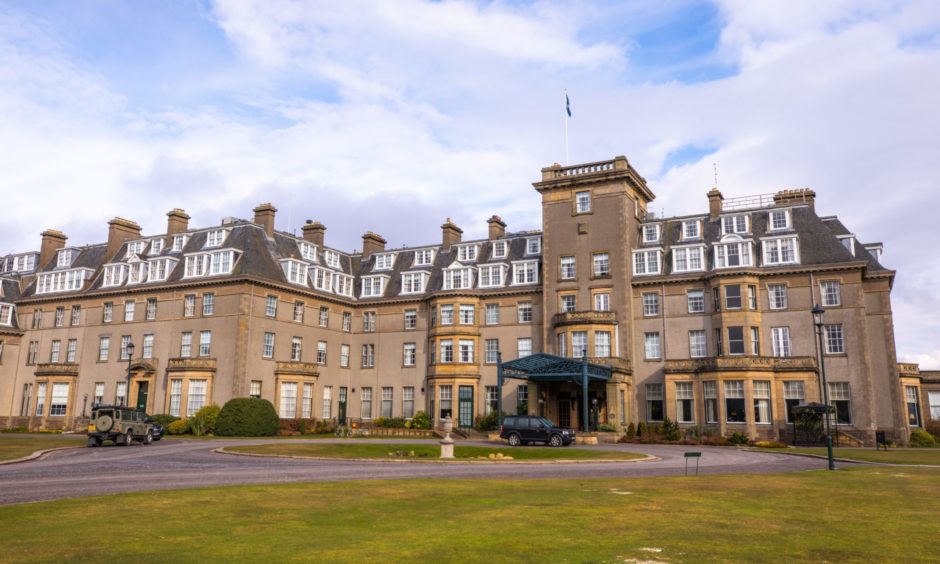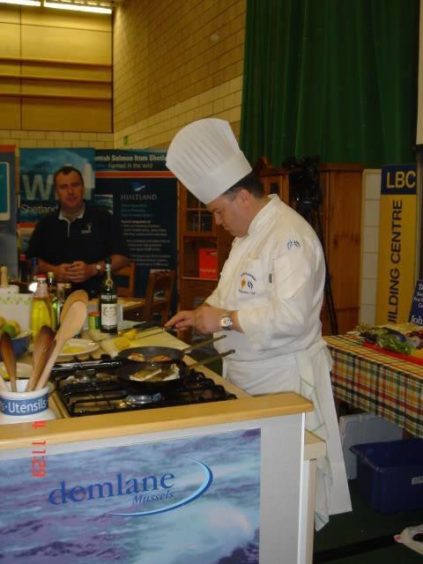Well, well. Turns out the foreigners weren’t coming over here and stealing all our jobs after all.
We got Brexit done, we survived a pandemic and now our pubs and restaurants are re-opening and there’s no one here who wants to work in them.
Arch Brexiteer Tim Martin discovered irony can be a cruel mistress this week when he revealed some of his JD Wetherspoon pubs were struggling to hire employees amid a hospitality jobs crisis.
In an interview with the Telegraph, which he later tried to talk back, he said he favoured a more “liberal” visa scheme for EU staff as a way to tackle the shortfall.
You’ll forgive me if I don’t shed too many tears for the haunted neep lantern.
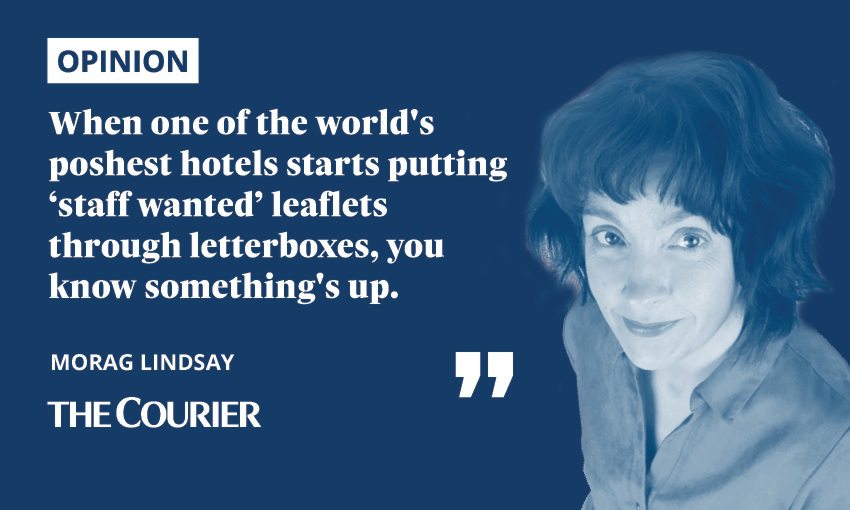
Stephen Leckie though. That’s a different matter.
The Crieff Hydro boss was warning us that “Brexit storm clouds” might wreck the labour market as far back as August 2019.
Despite it, his company had continued to invest heavily across its Scotland-wide estate, including in a new large-scale adventure park, fitness studios and an escape room at Crieff.
As the fifth generation of his family to run the Strathearn landmark, which has been hosting gatherings and marking milestones for 150 years, Mr Leckie probably has a better understanding than most of us when it comes to knowing what makes the hospitality trade tick.
It’s not just a business, it’s the people behind the venues, who put the pieces into place – most of them unseen – to create the occasions we remember. That’s what ties this line of work to so many of the moments that make life worth living.
“Who knows what’s around the corner,” Mr Leckie told our business editor Rob McLaren back then.
Turns out he had a pretty good idea.
This week, he revealed the group, which has seven hotels, is struggling to fill 75 vacancies out of a workforce of 700, despite priding itself on the wages, training and support it offers.
Hospitality jobs crisis
Brexit has added £3,000 a head and a mountain of red tape to the business of hiring workers from Europe, he explained, and finding people in the domestic jobs market isn’t easy.
“We recently held a recruitment evening and gained eight members of staff,” he said. “That’s a big success – at the moment every one counts.
The Hydro is not an outlier here. I got a flyer through my door from Gleneagles Hotel the other week, advertising some of the jobs it had on offer.
When one of the world’s poshest hotels starts putting ‘staff wanted’ leaflets through letterboxes, you have to ask yourself if something’s up.
Bigger picture time: the trade body UK Hospitality reckons there’s a shortage of 188,000 workers right now.
It says it surveyed hundreds of operators and found four in five have vacancies for front-of-house roles, such as waiting and bar staff, and 85% need chefs.
Brexit is having the impact everyone saw coming but Michael Kill, chief executive of the Night Time Industries Association (NTIA), has also described a “furlough hangover”, whereby people who had to get other jobs to tide them over during lockdown have realised the grass is greener and are not coming back.
They are earning the same money and realising they have a better work and life balance. So a lot of them have dropped out of the industry
Our food and drink editor Julia Bryce recently spoke to a number of local chefs, who described the difficulties they were having in running their kitchens and their fears for the future of the trade.
David Mckendry, head chef of the Kenmore Hotel in Aberfeldy, told her: “During the first lockdown a lot of chefs went to get other jobs in, say, supermarkets.
“They are earning the same money and realising they have a better work and life balance. So a lot of them have dropped out of the industry.”
You can’t really blame them, can you? From head chef to front reception, hospitality work is not for the faint hearted.
How often have you stayed in a hotel and realised the bar tender who was waiting patiently for you to down the last dregs in the wee small hours was the same person who’d been up since dawn getting the breakfast things ready for whenever you decided to haul your lazy, hungover carcass downstairs?
The hours aren’t just long, they generally involve weekends and evenings – the very times most of us want to be out having fun – and the pay is notoriously lousy.
But it’s an industry we neglect at our peril.
Value is more than monetary
The Fraser of Allander Institute calculates the accommodation and food services sector contributes around £7.6 billion a year to the Scottish economy and supports more than 200,700 jobs.
Scottish Enterprise ranks it the third biggest employment sector, behind health and social care and retail.
If the pandemic has taught us anything about the workplace it’s that the jobs we once considered low status are often the ones we can least do without.
And after 14 months in and out of lockdown we’re all gagging to get out and have some fun.
Foreign holiday plans were put on a shaky footing this week after an expected widening of the green list of Covid-safe destinations resulted in Portugal being stepped back down to amber.
So if we want to let our hair down it’s looking increasingly likely we’ll be doing it closer to home.
And if we want to have nice places to do that, and kind, patient, professional people looking after us we might need to re-evaluate how we reward them – whether it’s in the form of higher taxes to fund government support or paying more for their services in the moment.
Our lives would all be much poorer if they had to close their doors though. We’ve discovered that in the last year and a half.
